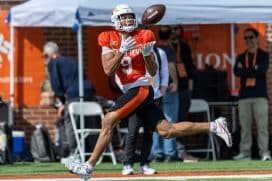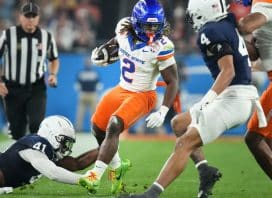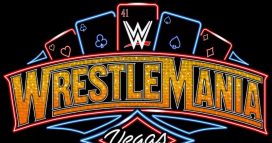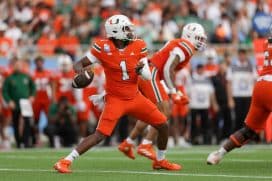Phillies
WHAT IS MLB CELEBRATING WHEN IT CELEBRATES JACKIE ROBINSON DAY?
Because baseball missed out on its annual opportunity to pat itself on the back on April 15th it shrewdly pivoted and made today, August 28th, “Jackie Robinson Day.” Rather than celebrate the day Robinson walked out to first base at Ebbets Field in 1947, putting to an end the ban on African Americans in Organized Baseball that baseball itself enforced for a half century, MLB has decided that the day in 1945 that Brooklyn Dodger President Branch Rickey signed Robinson, then with the Kansas City Monarchs of the Negro Leagues, to an agreement to join the Dodger organization, was the next best option.
Well enough. But what, exactly, is MLB celebrating here? Of course, Jackie Robinson must be remembered and nobody associated with American sports should be ignorant of all he had to overcome just to take a big league field, but why the “celebration”? And why is the collective that banded together for a half-century to bar an entire race an opportunity afforded to White American ballplayers seemingly as a matter of course celebrating their forbears’ decision to stop doing what they could have stopped doing for years if only they cared enough to stop doing it?
The recent announcement that MLB is considering reclassifying the various “Negro Leagues” as Major Leagues only amplifies the absurdity of baseball celebrating itself for putting a putative end to its very own marginalization of Black baseball. Of course the Negro Leagues were Major Leagues, as they were bursting with players who no doubt would have excelled in the National and American leagues of the first half of the Twentieth Century if only they were permitted the opportunity. No more proof of that is needed than this: by the end of the first decade of integrated big league ball (1956), a Black player had won six Most Valuable Player awards, seven Rookie of the Year awards, and the first Cy Young Award (Don Newcombe in 1956). On an organizational level, the two clubs that rushed to integrate first and pepper their rosters with Negro League players (the Dodgers and the Cleveland Indians), quickly became dominant in their respective leagues.
There will be obstacles in the effort to integrate the Negro League records into Organized Baseball’s, with some of them insurmountable. There were multiple “Negro Leagues” and record-keeping wasn’t what it was in the National and American leagues. Top-tier Negro League clubs would play other top-tier clubs but also lower level and ragtag outfits as they barnstormed across the country looking for any and all ways to fill their coffers sufficiently to keep the lights on in the ballparks and gas in the buses. How to deal with incomplete records and statistics along with the sometimes disorganized nature of Black baseball? Nobody knows. But this is a problem Organized Baseball created and because of it, we’ll never really know how truly great so many Black ballplayers of the first half of the Twentieth Century were. Celebrating yourself for ceasing to inflict a harm you never should have inflicted at all strikes a discordant note in the symphony MLB likes to play for itself.
Moreover, the arrival of Robinson and a select few of his contemporaries hardly ended Organized Baseball’s racially-motivated standards and practices. The next decade-plus saw an influx of Black stars but beyond them, roster spots were reserved primarily for White players. MLB could use Jackie Robinson Day to shine a spotlight on that somber reality but because that narrative doesn’t bathe Organized Baseball in sunshine it chooses to ignore it instead. The Robinson story MLB prefers is the one where one of its own – Rickey – beneficently “allowed” Robinson to join his Dodgers, a story that slyly shifts the focus from Robinson to Rickey, thereby permitting MLB to slather itself in glory. But doing so strips Robinson of his own voice in what is his story, not Rickey’s. Robinson recognized this and in his 1972 autobiography wrote as much:
There I was, the black grandson of a slave, the son of a black sharecropper, part of a historic occasion, a symbolic hero to my people. The air was sparkling. The sunlight was warm. The band struck up the national anthem. The flag billowed in the wind. It should have been a glorious moment for me as the stirring words of the national anthem poured from the stands. Perhaps, it was, but then again, perhaps, the anthem could be called the theme song for a drama called The Noble Experiment. Today, as I look back on that opening game of my first World Series, I must tell you that it was Mr. Rickey’s drama and that I was only a principal actor. As I write this twenty years later, I cannot stand and sing the anthem. I cannot salute the flag; I know that I am a black man in a white world. In 1972, in 1947, at my birth in 1919, I know that I never had it made. (emphasis added)
On this Jackie Robinson Day, as with all of the ones that came before it, baseball is celebrating Branch Rickey’s drama and not Robinson’s. It can do better. It should do better. It must do better.
Mitch Nathanson's biography of Jim Bouton is out now.





